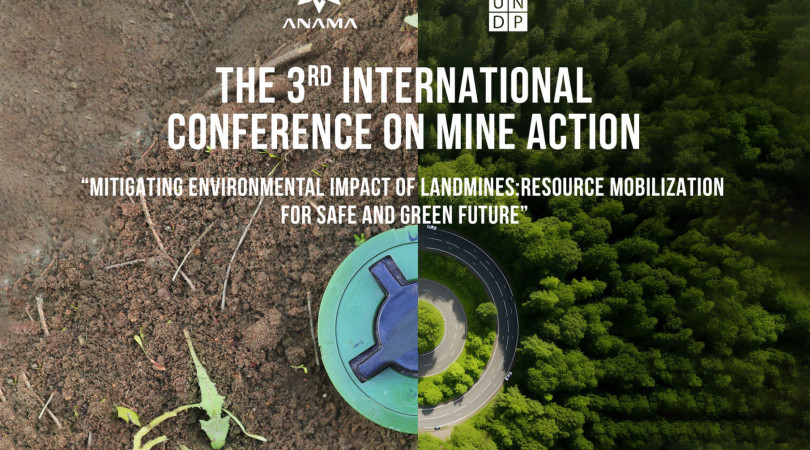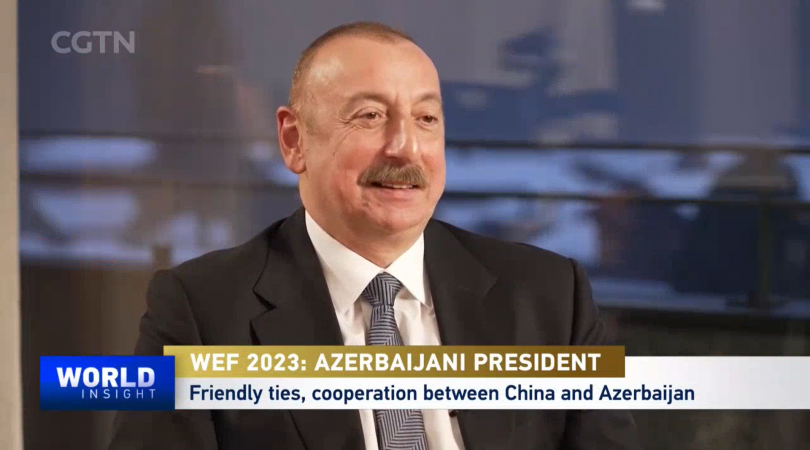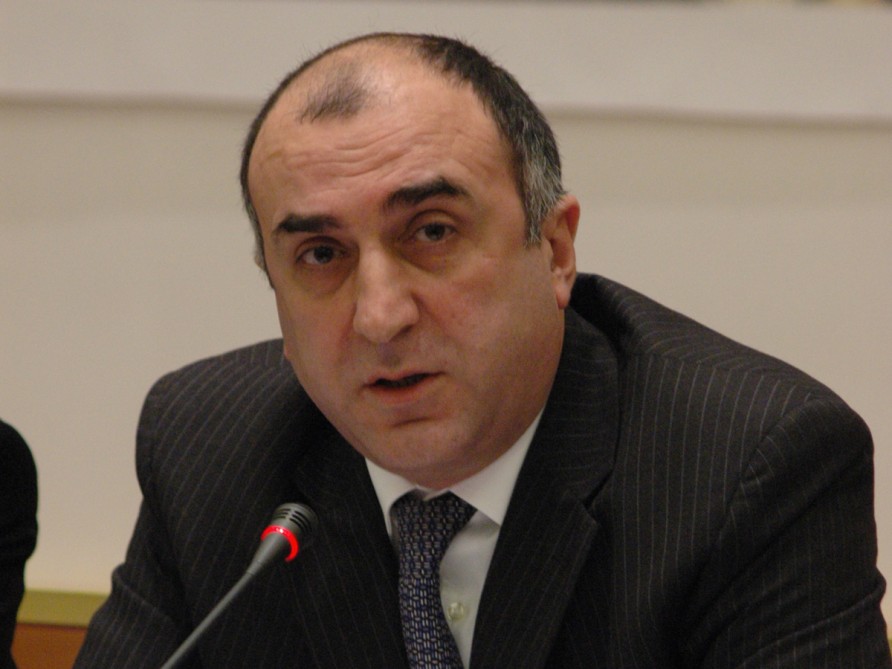FM Mammadyarov: ICT development is one of priority areas on Azerbaijan`s government agenda
“We live in the era of high technologies. The global trends are Artificial Intelligence, Cloud Computing, the Internet of Things and Machine to Machine (M2M) technologies. Development of these technologies and 4th Industrial Revolution will create new economic opportunities for countries and governments to improve the quality and transparency of public services thus enhancing the quality of life and improving the living standards of people,” said Azerbaijan`s Foreign Minister Elmar Mammadyarov as he addressed “Inclusive Digital Development in Eurasia” panel of the annual meeting of the New Champions held by the World Economic Forum in China.
The minister noted: “Investments in this field play crucial role in further sustainable development of each country. Access of the households to high speed internet, cloud computing for the Big Data challenge, well-developed solutions that meet cyber threats can be considered as the main milestones of this process.
We acknowledge that if we wish to create a future built on a shared prosperity, digital technology will be critical. In fact, as technology innovation accelerates, it may be the best path to inclusive growth. Governments have a key role to play in this regard by strengthening the foundations of digital economy. We should develop policies and regulations that enable business entities to leverage digital technologies to compete and innovate.”
“As far as Azerbaijan is concerned, development of Information and Communication Technologies (ICT) is one of the priority areas in the agenda of the Government. We recognize high technologies as a key driver of sustainable economic growth and take necessary measures for developing this sector. Shifts in the global economy made Information and Communication Technologies one of the most rapidly growing sectors in the country. Thus, currently it is the third important economic sector of the country after energy and transport.
Strategic Roadmap for Development of Telecommunication and Information Technologies in the Republic of Azerbaijan was approved by decree of the President in 2016. It covers various aspects of ICT sector development as well as relevant regulatory issues.
We put an immense emphasis on scientifıc progress and innovative development while drafting policy frameworks and governance protocols. The country has focused on Digital Trade, Cross-Border Data Flows, Blockchain and Distributed Ledger Technology as few of its main targets.”
FM Mammadyarov said: “79% of the country population are internet users, 72% of them use broadband internet. Internet access of households increases year on year and it is 77.2% now. Transition to the digital TV broadcasting has been completed. Besides, “Azerspace-1” telecommunication satellite, “Azersky” Earth observation satellite operate successfully and provide modern satellite services.
Azerbaijan has built an eGov portal based on blockchain technology with over 450 services from all government organizations that provided these services 30 million times. Presently 100% of customs declarations, 90% of tax declarations, 100% of labour contracts and 100% of invoices are processed online.
Besides creating an online catalog of national goods, in order to facilitate reaching new foreign markets the Digital Trade Hub (DTH), a public private partnership platform was established. The main purpose of this platform is to provide all necessary services; licenses, permissions, certifıcates and payment solutions to entrepreneurs and SMEs wishing to export their products. Azerbaijan’s DTH is thriving locally and regionally. After the launch in 2016 it has generated 475 million USD worth of goods ordered to 74 countries in its fırst year of activity.
Azerbaijan is the second country in the world to offer e-Residency and fırst to offer m-Residency to non-residents through Digital Trade Hub. E-Residency & m-Residency are Digital and Mobile identity issued by the Government of Azerbaijan to all non-residents with the aim to empower entrepreneurs around the world to set up and run location independent businesses in Azerbaijan and use cross-border e-services of local DTH.”
“We are planning to build Innovations Center in Baku, which will operate 7/24. This center will be free of charge for young entrepreneurs and StartUpers who have innovative ideas. They also have opportunity to get grants and loans from the State Fund for Development of Information Technologies. Government of Azerbaijan supports entrepreneurs to realize their ideas in business.
According to the WEF Global IT Report 2016, Azerbaijan is ranked 1st in Mobile Network Coverage, 8th in Importance of ICTs to government vision of the future and government success in ICT promotion and 12th in government procurement of advanced technology products and the use of ICTs by the government to improve the quality of public services to citizens. It’s worthy to also mention that Azerbaijan took the third place among the developing countries and first place in the CIS and in the whole Eurasian region in the annual Inclusive Development Index 2018 of the World Economic Forum.
Thanks to its geographical location and economic potential the Eurasian region is in the spotlight today. A region rich with natural resources and hydrocarbon reserves also possesses high scientific and technological potential and human resources.
Meanwhile, it is necessary to build modern and highly technological ICT infrastructures in the region and with this in mind the Government of Azerbaijan initiated Trans-Eurasian Information Super Highway (TASIM) project aimed to build a trans-national fiber-optic line between Hong Kong and Frankfurt. This broadband route should be the shortest line connecting East and West in the era of competition where every single second is important. The project supported by the UN General Assembly resolution is expected to give the countries involved such benefits as improved regional and global connectivity, routes diversification, improved disaster resilience, breaching digital divide and contributing to Sustainable Development Goals (SDGs) and contribution to regional innovation and modernization. We are convinced that realization of TASIM project will also open new economic opportunities for the land-locked counties of Eurasia.
We believe that along with other activities within ICT sector development, infrastructure digitization of transport corridors will also serve as effective enablers of inclusive growth.
Looking back to the history, this region was considered as center of trade routes and played an important role in economic development in a wider region. Everyone is aware of the historical significance of the historic Great Silk Road and it is not a coincidence that since gaining its independence Azerbaijan has supported the initiative and played a leading role in its restoration. Generally, Azerbaijan is known as the initiator of big infrastructure projects in the region such as Baku-Tbilisi-Ceyhan oil pipeline, Trans-Anatolian gas pipeline (TANAP), Trans-Adriatic Pipeline (TAP) and Baku-Tbilisi-Kars railway are just some examples.
Azerbaijan is considered to be the shortest linkage between China and Europe both in terms of distance and time. According to various estimates, this linkage allows to save 70% of transportation time. Presently, as trade flows increase between Europe and Asia, Azerbaijan is emerging as a transport and logistics hub at the crossroad of Eurasia.
Azerbaijan is very well-placed to play a key role in linking Europe and Asia, namely in realization of “One Belt, One Road” project initiated by China, by means of transit and logistics opportunities, Trans-Caspian transport and trade corridor, Baku-Tbilisi-Kars railway and Alat international trade port. These projects aimed to connect transport networks of China and European Union members should contribute to the inclusive and sustainable development of economic and trade relations within Eurasia as well as people to people contacts thus promoting regional development and prosperity.
Besides, Azerbaijan cooperates with its partners on creation of faster South-North transport corridor. This route provides delivery of cargo via Azerbaijan to the countries of Europe from Iran, Pakistan and India by land.
Maintaining security and stability is a crucial prerequisite in achieving inclusive digital development in Eurasia. But in the current realities ongoing occupation of internationally recognized territories of Azerbaijan by Armenia impedes and narrows our possibilities for developing full-fledged regional cooperation and thus achieving sustainable development not only in Azerbaijan, but also in the region as a whole. In this regard, I should stress that this occupation policy also deprives Armenia itself of its opportunities for economic growth and trade in the region. Thus, we still cannot use the full potential of our region to advance to a more inclusive, comprehensive economic cooperation.”
“As I mentioned before, rapid development of new technologies provide new opportunities to people and to countries in the economic and social areas. But apart from that it also brings new challenges and threats such as cyber-attacks and job losses. While facing these challenges governments have large responsibilities. They should properly assess the situation and take necessary measures to prevent the citizens from these treats.
I would like to underline that taking into account growing importance of ICT and new technologies for inclusive sustainable development and thus for fostering economic performance and raising living standards of people, the Republic of Azerbaijan stands ready to further strengthen and broaden cooperation in this sector within Eurasian region,“ Elmar Mammadyarov added.



















